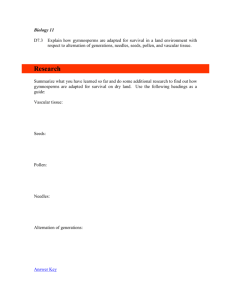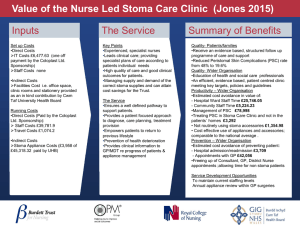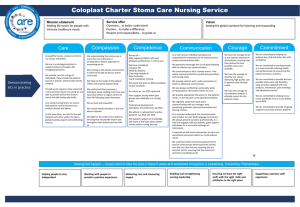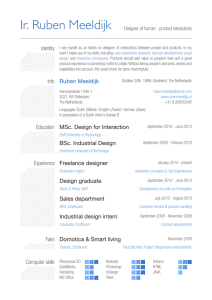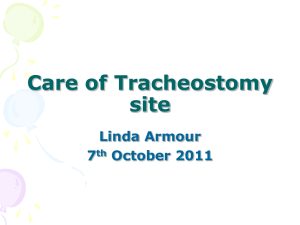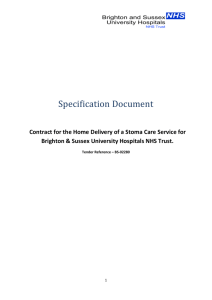2 CoRPS - Center of Research on Psychology in Somatic
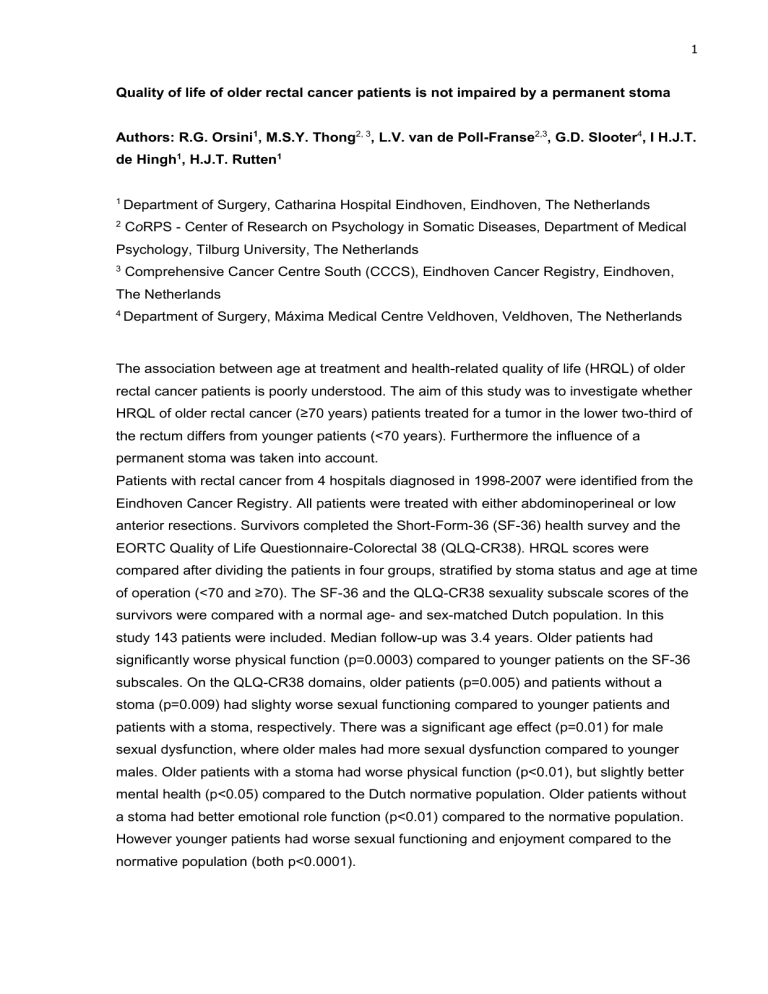
1
Quality of life of older rectal cancer patients is not impaired by a permanent stoma
Authors: R.G. Orsini 1 , M.S.Y. Thong 2, 3 , L.V. van de Poll-Franse 2,3 , G.D. Slooter 4 , I H.J.T. de Hingh 1 , H.J.T. Rutten 1
1 Department of Surgery, Catharina Hospital Eindhoven, Eindhoven, The Netherlands
2 C o RPS - Center of Research on Psychology in Somatic Diseases, Department of Medical
Psychology, Tilburg University, The Netherlands
3 Comprehensive Cancer Centre South (CCCS), Eindhoven Cancer Registry, Eindhoven,
The Netherlands
4 Department of Surgery, Máxima Medical Centre Veldhoven, Veldhoven, The Netherlands
The association between age at treatment and health-related quality of life (HRQL) of older rectal cancer patients is poorly understood. The aim of this study was to investigate whether
HRQL of older rectal cancer (≥70 years) patients treated for a tumor in the lower two-third of the rectum differs from younger patients (<70 years). Furthermore the influence of a permanent stoma was taken into account.
Patients with rectal cancer from 4 hospitals diagnosed in 1998-2007 were identified from the
Eindhoven Cancer Registry. All patients were treated with either abdominoperineal or low anterior resections. Survivors completed the Short-Form-36 (SF-36) health survey and the
EORTC Quality of Life Questionnaire-Colorectal 38 (QLQ-CR38). HRQL scores were compared after dividing the patients in four groups, stratified by stoma status and age at time of operation (<70 and ≥70). The SF-36 and the QLQ-CR38 sexuality subscale scores of the survivors were compared with a normal age- and sex-matched Dutch population. In this study 143 patients were included. Median follow-up was 3.4 years. Older patients had significantly worse physical function (p=0.0003) compared to younger patients on the SF-36 subscales. On the QLQ-CR38 domains, older patients (p=0.005) and patients without a stoma (p=0.009) had slighty worse sexual functioning compared to younger patients and patients with a stoma, respectively. There was a significant age effect (p=0.01) for male sexual dysfunction, where older males had more sexual dysfunction compared to younger males. Older patients with a stoma had worse physical function (p<0.01), but slightly better mental health (p<0.05) compared to the Dutch normative population. Older patients without a stoma had better emotional role function (p<0.01) compared to the normative population.
However younger patients had worse sexual functioning and enjoyment compared to the normative population (both p<0.0001).
Conclusions : This study shows that older patients with a stoma have comparable HRQL to older patients without a stoma or the normative population. Our findings indicate that a permanent stoma for elderly patients with a low situated rectal carcinoma could be feasible.
Patients who are sexually active after treatment could benefit from receiving psychosocial and clinical support in the management of potential sexual dysfunction following treatment.
2
